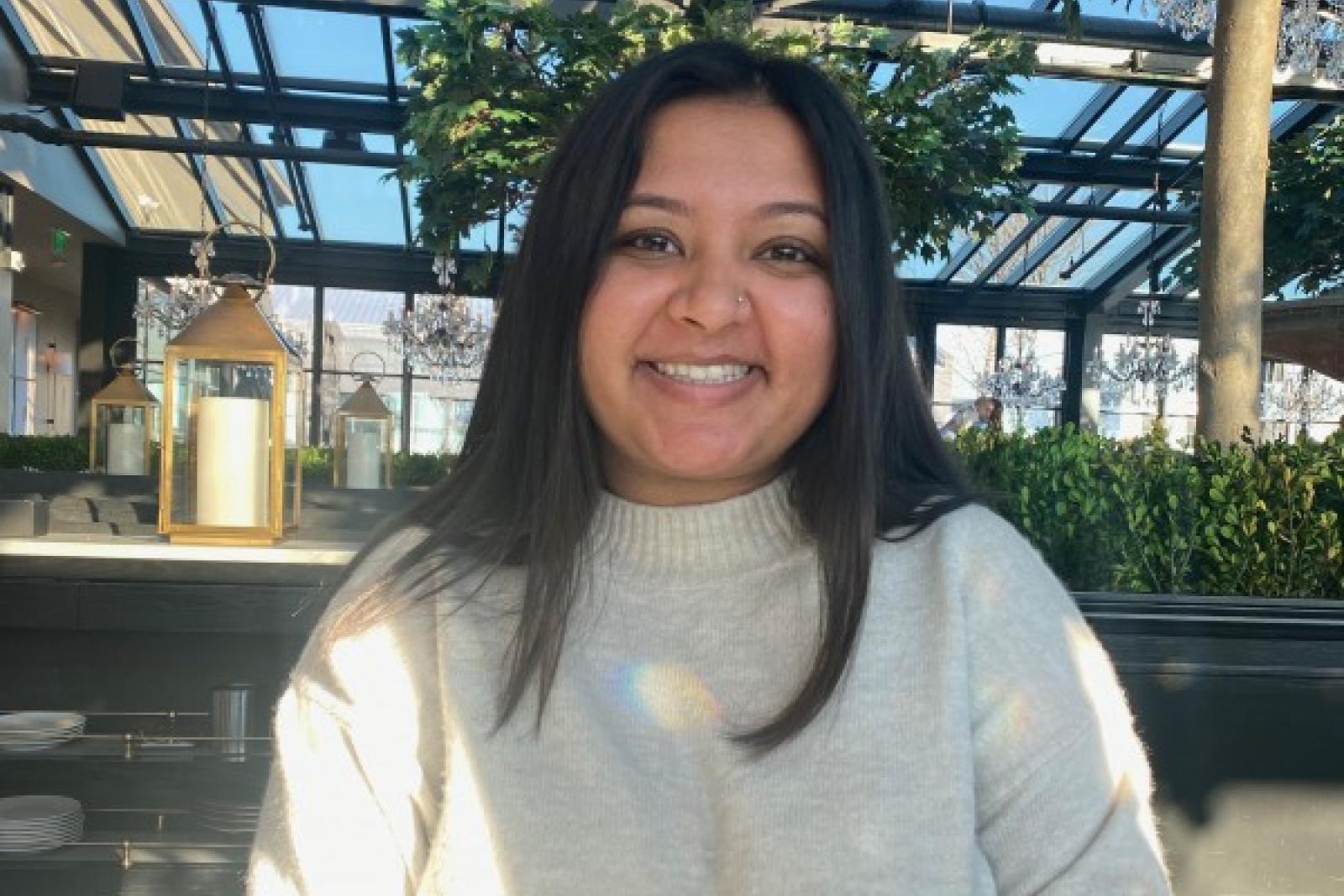Shivani Patel receives national award for addressing health inequalities

Shivani Patel, BSPS ’18, a Class of 2022 PharmD student at The Ohio State University College of Pharmacy, was named the recipient of the United States Public Health Service’s (USPHS) Excellence in Public Health Pharmacy Award for her efforts in making health care more accessible to Columbus’s underserved populations.
The Pharmacist Professional Advisor Committee of the USPHS issues the Excellence in Public Health Pharmacy Award every year. This prestigious award recognizes pharmacy students who have made significant contributions to public health by promoting wellness and healthy communities. To be considered for the award, students are evaluated on their contributions toward voluntary health-related services, recognizing their efforts to promote wellness and healthy communities.
College of Pharmacy Dean Henry Mann, PharmD, FCCP, FCCM, FASHP, nominated Patel for the work she’s done at The Ohio State Worthington Family Practice and the Physician’s CareConnection Medical Free Clinic – service she’s completed outside of the College of Pharmacy’s curriculum.
Assessing patients’ needs
As part of a community health education program, Patel worked with a team to assess community needs and found inequities among Ohio State’s Worthington Family Practice’s Nepali patient population. Their assessment showed that none of the clinic’s Nepali patients visited the clinic’s psychologist and most did not understand the purpose of the routine PHQ-9 – a questionnaire used at every office visit to screen for depression.
The team’s extensive research showed concepts like anxiety, depression and mental health were taboo topics and seen as heart-body problems in Nepali culture instead of brain-body problems. With this new-found knowledge, the group concluded these patients were not receiving much-needed care because of a lack of translation services and mental health education.
To eliminate this disparity, Patel worked with the Ohio State Medical Translation Services to create a standardized written and audio PHQ-9 survey in Nepali. The team hired a medical translator to culturally translate the PHQ-9 to Nepali. Importantly, the screening tool was translated culturally instead of verbatim because of how the Nepali population viewed mental health.
After a month of using this new survey, the clinic saw a rise in Nepali patients seeking psychological help and in Nepali patient retention because the population felt more valued and cared for. This questionnaire is now a standard process for all Nepali patient appointments and eliminates health care inequity among this underrepresented population.
Increasing medication supply to address health inequity
When the COVID-19 pandemic swept through local communities Patel worked at the Physician’s CareConnection Medical Free Clinic as a pharmacy coordinator. She noticed patients were not being seen or receiving the medications they needed because they were uninsured or living in underserved areas. She spoke to patients about this and learned that transportation and childcare access were barriers.
Patel saw this as an opportunity to step away from the clinic’s traditional workflow and dispensing process to create a service that could eliminate these barriers for patients. She acknowledged that since patients may not be able to travel often, receiving a higher supply of medications would support better health outcomes.
She spoke with the clinic’s staff and weighed the risks and benefits of raising the clinic’s dispensing limit to six-month supplies from 90-day supplies. Patients were interested in this change because it would allow them to have a longer supply of their medications without the added stress of refilling every month.
Patel made a list of the most prescribed medications at the clinic and began looking for partners that would supply the medications for little or no cost. She completely revamped the pharmacy process to better care for the underserved patients of the clinic. She was also able to provide patients with COVID-19 and vaccination information when they came in.
Many of these patients knew the severity of the pandemic but did not have access to the resources to learn more. Through these conversations, she created a list of resources and pharmacies that were offering vaccinations to eligible patients.
These improvements led to the clinic becoming a trusted center for its underserved patients to receive continuous and free medical care.
The Impact of her work
Patel created systematic changes for minority communities across Columbus by focusing on underserved populations and addressing health inequity.
“Through active listening and hard work, she improved the care provided and lives of patients cared for at these clinics,” Dean Mann said in his nomination letter.
About Patel
Patel is a third-year PharmD student at the College of Pharmacy from Mount Prospect, Illinois. She is also the first in her family to pursue a doctoral degree. Patel’s passion for service started in her childhood. She spent most of her free time volunteering at retirement homes, local libraries and hospitals.
During her medical service trip to Mulanje, Malawi, Patel discovered that her passion for service evolved into a greater passion for people – particularly minorities and underserved populations in the United States. Advocating for and promoting health equity have now become engrained into her daily life as she pursues a PharmD degree.